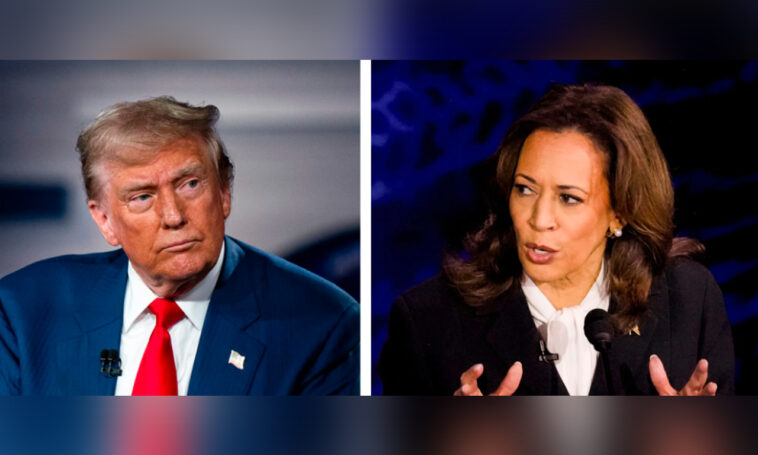Donald Trump criticizes Vice President Kamala Harris amid alarming data showing thousands of criminal migrants in the U.S.
Former President Donald Trump is making headlines again, this time for his harsh criticism of Vice President Kamala Harris regarding the issue of illegal immigration. Speaking at a campaign event in Walker, Michigan, Trump called the United States a “dumping ground” for non-citizen criminals. His comments came just hours after the release of troubling data from U.S. Immigration and Customs Enforcement (ICE), showing that tens of thousands of illegal immigrants with serious criminal records are currently in the U.S.
The ICE data reveals alarming statistics: there are approximately 425,431 convicted criminals not currently in detention, along with an additional 222,141 individuals facing pending criminal charges. The figures indicate a significant public safety concern, as they include 62,231 people convicted of assault, 14,301 for burglary, 56,533 with drug convictions, and 13,099 convicted of homicide. Moreover, 2,521 individuals have kidnapping convictions, and 15,811 have been convicted of sexual assault.
At his rally, Trump expressed outrage over these statistics. He stated, “Non-citizens, convicted criminals from all over the world are right now at-large in the United States of America.” This sentiment resonates with many Americans who are increasingly concerned about crime linked to immigration policies.
Trump directed much of his ire at Vice President Harris, who was scheduled to visit the southern border the same day. He accused her of neglecting the immigration crisis.
“It’s a killing machine, and they’re killing people all over our country,” Trump said.
He claimed that Harris had previously downplayed the danger posed by these individuals, arguing, “No, no. These people make our criminals look like nice people.”
The Biden administration has faced criticism for its handling of immigration, particularly regarding the release of migrants into the U.S. interior. This has led to a notable decline in deportations. Critics argue that “sanctuary” cities, which limit cooperation with federal immigration authorities, play a role in the increasing presence of criminal migrants. ICE has acknowledged that while some jurisdictions fear eroding trust with immigrant communities, such policies can inadvertently shield dangerous criminals.
Trump’s remarks reflect a growing frustration among voters concerned about public safety and border security. In recent months, crime rates associated with illegal immigration have emerged as a critical issue for many Americans. The former president emphasized that Harris inherited a secure border and claimed, “She then set the all-time record for illegal immigration into our country.”
Harris’s campaign has not responded to Trump’s allegations directly. However, her scheduled visit to the border has drawn skepticism from some observers. Critics argue that her visit is merely a political stunt, intended to placate public concerns without offering substantive solutions.
The controversy surrounding immigration and border security has become increasingly polarized. Supporters of Trump argue that the current administration’s policies have led to a surge in crime and that effective measures must be taken to secure the borders. Conversely, proponents of more lenient immigration policies emphasize the importance of protecting the rights of migrants while ensuring community safety.
The issue has also sparked discussions about how to balance humanitarian efforts with the need for security. Many advocates believe that focusing solely on crime can undermine the broader narrative surrounding immigration reform. They argue for a more comprehensive approach that addresses the root causes of migration while maintaining public safety.
As the political landscape heats up with the upcoming elections, immigration is expected to remain a key topic of debate. Trump’s comments are likely to resonate with his base, who are increasingly vocal about their concerns regarding crime and security. His focus on Harris aims to paint a picture of a leadership failure that many of his supporters find compelling.
As public attention turns to the implications of these statistics, the debate over immigration and border policy will likely intensify. The challenge for lawmakers will be to find solutions that ensure safety while also addressing the complex issues surrounding migration.
Trump’s strong words regarding Harris and the recent data from ICE have reignited discussions about the state of immigration in the United States. With crime and public safety at the forefront, both parties will need to articulate clear and effective strategies to address these pressing concerns. As the nation approaches the election season, the spotlight on immigration and its implications for American communities will only grow brighter.



